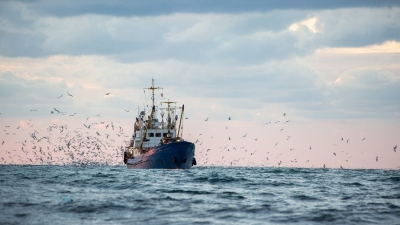Bulgarian commissioner: To adequately finance R&D, the EU needs private capital

European Commissioner for Innovation, Research, Culture, Education and Youth Iliana Ivanova told Euractiv the EU must look at private financing to plug the gap in funding science and innovation, currently estimated at €100 billion per year.
Bulgaria’s Ivanova took her post last June after her predecessor, Mariya Gabriel, left to return to Bulgarian politics.
Asked about the challenge of taking over an extensive portfolio for a short time, Ivanova, a former MEP and member of the European Court of Auditors, said, “The time is short, but also enough to do some meaningful things, such as the evaluation of all the programs, the mid-term evaluation of Horizon Europe, of Erasmus+, of Creative Europe and to map the steps of where the next programs will go, in the next multiannual financial framework.”
Perhaps the most important portfolio
Asked if she saw her portfolio as important, she said, “I think it is very important and strategic, perhaps the most important for the future of Europe from a strategic point of view”.
She admitted she was “disappointed” that EU governments in February decided to cut €2.1bn from the EU flagship Horizon Europe programme’s budget to fund other priorities.
“I said it many times that I’m not particularly happy about this fact, but I understand that the big picture required decisions where we had to fund urgent issues.”
Ivanova said that the first thing she wanted to do when she knew she would take this portfolio was to define what are the amounts available.
Horizon Europe has a budget of almost €100 billion for the EU 7-year budget period.
“But the other question I immediately asked is, yes, but what are our needs. OK, we have €100 billion, but how much do we need. And there we see that for the last over 20 years we have had a deficit of about €100 billion per year in funding for science and innovation”, she said.
The commissioner further argued that to fill the financing gap, the EU should follow the US model of successfully attracting private capital.
“It can be seen that Horizon Europe, with €100 billion for seven years, has no way to fill a deficit that is €100 billion per year.”
The answer, she said is private financing.
”If America is successful, this can be explained by the large percentage of private venture capital. The market in America is about six to seven times bigger in risk financing than in Europe”, she argued.
Ivanova explained that if the investment in R&D is calculated as a percentage of GDP, the target all developed countries aim for is 3%.
“We (the EU) are under, around 2.26%, plus or minus a few points over the years, but overall well behind that target”, she added.
The problem is the education
The commissioner said she had held several meetings with investors so far, with the idea of understanding better what is holding them back and what would motivate them.
The first thing investors mentioned, she said, was the fragmented EU market, which “is not helping”. The second reason, she said, was the regulatory framework, which in her words could be improved.
However her biggest concern appeared to be the regress in children’s education, and referred to the latest OECD Programme for International Student Assessment (PISA), showing that the rate of underachievement has largely increased in mathematics and reading.
“There is no way to talk about digital skills, about artificial intelligence, if children cannot read and write. So we go from there and step by step we have to address each and every challenge”, Ivanova said.
She voiced some optimism with regard to the work of the European Innovation Council, which supports start-ups through patient capital to minimise the risk for private investors.
“It can already be seen that the latest numbers bring me quite a bit of optimism. Because let’s not only be critical, let’s also say the good things when there are. Over €2 billion have already been invested by the European Innovation Council. Last year, around 350 startups were supported. Every euro invested by the European Innovation Council brings an additional €3.5 of private capital attracted. That’s exactly the point. We have to develop it and make it work’.
MEPs as allies
Asked if the European Parliament was an ally, she was very positive.
“We are already hearing numbers, on several occasions MEPs have publicly called for doubling the budget of Horizon Europe for the next financial framework. Of course, I will not commit myself to a number now. But I am glad of their commitment and support.”
Asked what her plans were, in the context of the political crisis in Bulgaria, the country heading for a sixth snap election in just a couple of years, she said she was concentrating on her work in Brussels.
Asked what the atmosphere in the Commission was, with several commissioners seemingly busy with their election campaigns, she said her colleagues were “engaged, excited, active, and that’s how it should be in an election period”.
Asked if she thought Commission President Ursula von der Leyen would win a second term, she said “I hope so”.
belongs to the EPP-affiliated party GERB of Boyko Borissov.
A full-length version of the interview in Bulgarian can be found here.


